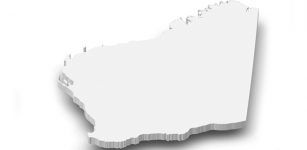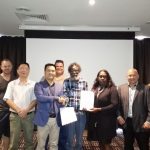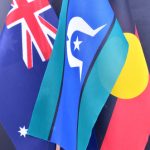WA Considers Separating from the Rest of Australia

Western Australia has long debated whether to withdraw from federation, and the issue is once again on the agenda.
At the WA Liberal party state conference on September 3, members voted in favour of a motion to investigate whether to secede from the rest of the country.
The non-binding “WAxit” motion calls on the Liberal party state council to form a committee with three former members of parliament and three council members to “examine the option of Western Australia becoming a financially independent state.”
A last minute amendment to the motion, added that word “financially” to what had previously read “an independent state.”
The motion – which passed 89 votes to 73 – was put forward by Rick Palmer from the division of Brand. He argued that Canberra is financially shafting Western Australia.
The major gripe Liberal party members have with the Commonwealth is with its distribution of GST revenue. Currently, WA only receives 34.4 cents out of every dollar of GST revenue raised in the state. This percentage is far below any other state or territory.
WA Liberal leader Mike Nahan – who voted against the WAxit motion – is threatening to launch a High Court challenge against the Commonwealth Grants Commission, due to its method of distributing GST revenue. He claims it is unconstitutional as it discriminates against certain states.
The lunatic fringe
Liberal party members that voted against the motion warned that it could lead to the party being labelled as the “lunatic fringe.” However, WA Liberal party state president Norman Moore, who supported the motion, said it would send a very strong message to Canberra.
“It tells them that Western Australians, particularly Liberal party Western Australians, are not happy with the way in which WA is being treated,” Moore told reporters.
Mr Moore has been a long-time advocate of secession, but today, describes himself as a financial secessionist, who is in favour of WA having control over the wealth it generates.
Back in 2013, Moore was the WA minister for mines and petroleum. At the time, he made headlines, when he suggested that the state could make a unilateral declaration of independence and become a free nation.
The former minister claimed that the new country could form alliances with China and the United States, which would provide for military defence.
Serious reservations
The self-governing colony of Western Australia was reluctant to join federation and delegates expressed its reservations at the constitutional conventions of the 1890s.
And it was always about economics. At the time, European colonisers in WA were enjoying unprecedented prosperity. Half of Western Australia’s revenue came from inter-colonial tariffs, and these were to be abolished under the proposed federal constitution.
Due to these misgivings, Western Australia refused to participate in the referenda of the late 1890s that sought approval for the draft constitution. And it initially appeared that federation would take place without WA.
Indeed, the preamble to the Australian Constitution doesn’t mention WA. It only refers to the other five states.
However, in 1900, Western Australians voted overwhelming in favour of joining the federation in a last minute referendum.
But, within a few short years of joining the Commonwealth, there were already complaints that WA had become a Cinderella, or disadvantage, state.
The secession referendum
A secessionist movement was formed in 1930 called the Dominion League. Its leader was Keith Watson, who later became a Liberal party MLC. The movement actively campaigned for the secessionist cause, and its number swelled to around 10,000 members.
In 1932, then-WA premier Sir James Mitchell called for a referendum on the matter. In April 1933, 91 percent of the voters turned out to cast their ballot, and 68 percent of them voted in favour of seceding from the Commonwealth of Australia.
However, a state election was held on the same day as the referendum, and the pro-secessionist Nationalist party was voted out of office, and the anti-secessionist Labor party came to power.
The Labor party subsequently sent a delegation to London in 1935 to petition the British government to overturn the previous act of parliament that had allowed for the creation of the Australian federation. The government referred the issue to the joint committee of the House of Commons.
However, the committee rejected the petition stating that British parliament could not act without the approval of the Australian federal parliament. And this, it did not have.
The politics of footy
Following the Liberal party motion, the new Western Australian Secessionist Movement formed. It describes itself as “the official non-partisan organisation representing movements towards an independent western state.”
The group points out that Perth is actually closer to Jakarta, than it is to Canberra, and it’s also the most isolated city in the world. And due to its size, if Western Australia did withdraw from federation, it would be the tenth largest country in the world.
“WA has not received a positive GST distribution since 2006, as the state’s finances have been leeched to keep economies of the east afloat,” the movement states in a Facebook post. And the decision to remove Western Force from the Super Rugby is another reason the group is aggrieved.
A nonstate world
In an opinion piece in the New York Times in 2013, Parag Khanna discussed the newly emerging concept of the “nonstate world.”
The idea was described in a report by the US National Intelligence Council. It envisaged a world where technology and capital accumulation had led to governments subcontracting responsibilities to third parties, which then set up enclaves operating under their own laws.
According to Khanna, these zones already exist. He gave the examples of Shenzhen in China, and Jebel Ali Free Zone in Dubai.
Mr Khanna then went on to list places around the world that are now “seeking maximum fiscal and policy autonomy from their national capitals.” These included Scotland and Wales in the UK, the Basque Country and Catalonia in Spain, British Columbia in Canada and Western Australia.
WAxit
WA Liberal leader Dr Nahan fought to have the term “WAxit” removed from the title of the recent motion. But secessionist stalwart Mr Moore wouldn’t have it. Of course, the term invokes the Brexit vote, and all its regionalist and racist overtones.
Despite the long enduring secessionist sentiments in the state, many, including former premier Geoff Gallop, simply put the topic down to a convenient tool that’s wheeled out to push a certain political agenda. But in reality, they believe, it’s completely unrealistic.
But either way, WAxit certainly doesn’t bode well for Malcolm Turnbull. On the day prior to the motion being passed, at the WA Liberal party state conference, the PM said the government was considering a GST revenue “percentage floor below which no state or territory share could fall.”
However, the PM gave no timeline as to when this would be established. And in response, WA Liberal party members decided it was worthwhile looking into financially seceding from the rest of the nation.
The WAxit committee will report on its findings by July next year.








